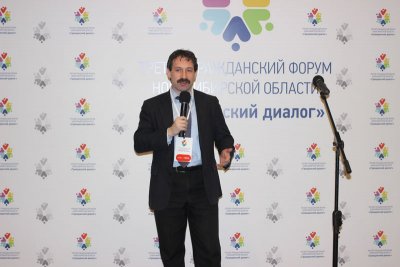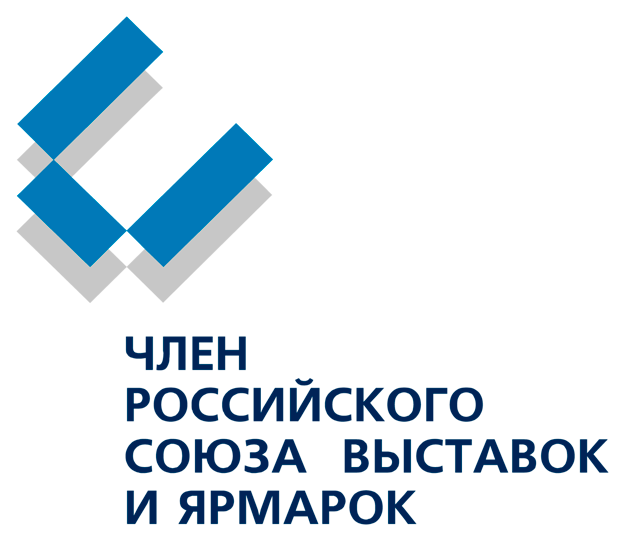Moving from Grant Support of Non-Government Initiatives to Developing the Fund Was Discussed at the 3rd Civil Forum ‘Civil Dialogue’

The Forum held at the Novosibirsk Expocentre International Exhibition Complex featured representatives of non-government organizations, members of the Russian Federation Public Chamber, specialists from federal and regional regulatory institutions, representatives of socially responsible businesses, experts from the Novosibirsk Region and 25 regions of Russia.
Vladimir Gorodetsky, temporarily acting as the Governor of the Novosibirsk Region noted: ‘I’m convinced that it is hard to achieve positive results in administration unless there is a professional and respectful dialogue between the government and the public. Today’s Forum gives us great opportunities to share our opinions, try to hear each other, get new ideas on what is happening in our world today and how we can respond to the challenges of time more effectively. Only the people can make us fully understand the problems that exist in real life of the society and, consequently, work out more elaborate and effective administrative solutions’.
Presidential Envoy for the Siberian Federal District Viktor Tolokonsky stated that the Forum should stimulate the refreshment of policies related to supporting and developing non-government initiatives. ‘While understanding the importance of interacting with the society, we should all the time work on finding new effective interaction measures, stimuli to increase the level of non-government initiatives. Grant programs have played a major role in boosting the activities of non-government organizations and implementing many projects. But I believe that today having such programs is not enough, and we should think about establishing large non-government funds that would support work in various priority spheres. By creating such funds, we could delegate many functions of state regulation to non-government organizations faster and more effectively. Some of these functions are hard to delegate to separate non-government organizations because there are plenty of them and they are not always consolidated’, said Viktor Tolokonsky.
The transition to systemic, consistent work in the sphere of developing non-government organizations is also being discussed on the federal level.
Director of the Innovative Development Department at the Russian Federation Ministry of Economic Development Artyom Shadrin noted: ‘The potential of the non-government sector in solving social tasks (prevention of social orphanhood, support of the disabled, and the elderly) starts getting more and more attention on the federal level. We are gradually moving from one-time grant projects to systemic consistent work, integration of projects of non-government economic sector into the system-based consistent activities of social ministries operating in regions of Russia’.
Artyom Shadrin pointed out the most important measures taken last year by the Russian Federation Ministry of Economic Development in relation to supporting and developing the non-government sector that include retaining discounts of social payments for socially oriented non-government organizations equal to 20% of wage fund.
Additionally, the Contractual System Federal Law provision was adopted. This provision set a 15% quota for all state procurements (except for defense and nuclear complex procurements) for small and medium-sized businesses as well as for socially oriented non-government organizations. Thus, additional advantages are created for non-state NGOs and small businesses in relation to providing social services, work performance, product manufacturing. This measure should improve the stability of non-government sector and allow for implementing larger projects.
One more development direction is expanding the scope of activities for NGOs, which allows referring to them as socially oriented. The following activity types have already been added to the Law on Non-Government Organizations: promotion of patriotism, raising intolerance of the society to corruption; developing international cooperation, preserving culture, languages, and traditions of nations that live in Russia. The inclusion of the following activities is also planned: social and cultural adaptation and integration of migrants; participating in prevention and extinguishing of fires; performing rescue operations. These amendments will soon be submitted to the State Duma of the Russian Federation.
As for the current state and the development of funds in Russia, experts speak about the growth of state financing, the emergence of new grant programs. The first grant competitions concerning human rights work were held in Russia in 2013. The growth of civil and volunteer activism remains the main trend. Experts also emphasize wider use of internet technologies.
According to the data provided by the executive secretary of the State Non-Governmental Organization ‘Forum of Donors’ Natalya Kaminarskaya, in 2013 total budget of 80 charity funds was equal to over 6 billion rubles. Maximum amount of money were invested by private funds. The second place is taken by fundraising funds that collect money from large groups of people in order to provide support in difficult life situations. A perfect example of the work done by fundraising funds was helping people after last year’s flood at the Far East.
Education and enlightenmentspheres are still among the key interests of charity funds. As many as 66 of 87 charity funds work in this sector. Fundraising funds are most interested in healthcare and supporting socially vulnerable groups of the society. Civic initiatives and human rights work are among the least popular activities of funds.
Speaking about corporative funds, over 60 companies invested over 13 billion rubles into various socially important projects in 2013. Moreover, private investments equaled 166 million rubles, which is a very impressive result.
Back








